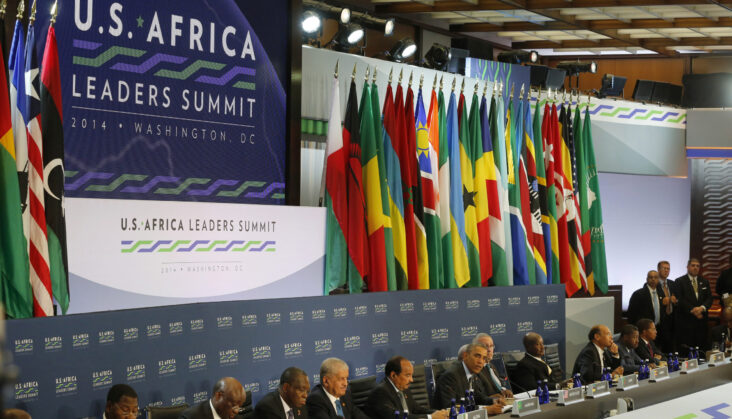Indeed, private capital deals reached a record high of $7.4bn in 2021 alone, according to the African Private Equity and Venture Capital Association.
Meanwhile, many African countries struggle with food insecurity, low electrification rates, limited access to health services, inadequate transport infrastructure, currency volatility, and other developing world constraints.
Estimates from the UN suggest that 346 million people across the continent – approximately one-quarter of Africa’s population – currently face some form of food insecurity. Rising food costs stemming from the Russia-Ukraine conflict and lingering supply chain disruptions from the initial Covid-19 pandemic, along with increasingly severe climate conditions that force displacement and disrupt agricultural production, are expected to compound these challenges.
Countries face a very real possibility of losing hard-won progress made on achieving sustainable development goals (SDGs) without some form of intervention. Time has shown that aid is not sufficient to comprehensively meet Africa’s needs. Only investment – focused on long-term, sustainable growth – can provide solutions to Africa’s development challenges of today and its needs of tomorrow.
Investment critical to development goal success
A growing appreciation among policy-makers of the private sector’s critical role in advancing development objectives has seen investment-enabling strategies play a central role in broader Africa-focused policies.
The inclusion of the US-Africa Business Forum in the agenda of next week’s Africa Leaders Summit in Washington DC is a case in point. As the American administration works to reassert its influence in Africa, private sector participation is front and centre of policy plans.
The country’s flagship initiative for engaging with the continent, Prosper Africa, aims to facilitate two-way investment and trade between the US and African countries. Since its [establishment] in 2019, Prosper Africa has been responsible for closing over 800 deals and facilitating $50bn in investments and exports between US companies and African countries. The initiative’s facilitation services, which include a virtual deal room, have become critical tools to achieving objectives of the nation’s new sub-Saharan Africa strategy released earlier this year.
Data is key
The success of this policy-driven focus on investment in Africa will rest on overcoming challenges, chief among which are perceptions of market risk, amplified by a lack of robust data about Africa’s private sector.
From annual revenue and performance metrics, to the competitive landscape across industries, it is often difficult for investors and supportive policymakers to obtain the information needed to make critical investments that advance Africa’s economic development.
Progress on turning the tide of Africa’s development challenges will depend on the speed and comprehensiveness with which investors are able to access and utilise high-quality and relevant data about the private sector in Africa. Asoko has been working with Prosper Africa to track investment by US firms and funds into the continent.
As of October, we have identified 550 deals which have pumped $28.6bn into businesses across 32 countries on the continent. Though not comprehensive, this represents a significant slice of American deal activity and can be used to analyse trends in the participation of America’s private sector in African markets.
Mirroring wider investment trends, US firms and funds invest heavily in the Big 4 markets, with Nigeria, South Africa, Kenya and Egypt securing 65% of investment. Ghana is another major market for investment, attracting over $3bn in 18 deals.
Investment from US firms and funds is concentrated in consumer-focused sectors, an implicit acknowledgement that the continent’s people are among its strongest resources for growth. Energy, financial services, consumer goods and ICT account for nearly 80% of deal value, all sectors which provide the foundational infrastructure to develop the continent’s domestic markets, including intra-regional trade, alongside natural resource exports.
Within these major investment markets, deal size varies significantly. Energy, for example, recorded the most investment, at some $9.2bn (31% of the total value mapped), through just 54 deals (10% of the total number of investments). [In] contrast, financial services recorded the second-highest value of investment at $8.3bn from 146 deals (26% of the total).
Deal size varies by source as well as by sector. Though corporations making direct investments in Africa comprise a third of actors on the dataset, their investment makes up half of the total value of deals tracked, highlighting the outsized influence these larger-scale deals have in local markets.
With this in mind, the US-Africa Business Forum will be keenly watched for announcements on new engagements between US and African private sector players. Eight years ago, $14bn in deals was committed during the first US-Africa Summit. As heads of state and business leaders converge in Washington DC for the US-Africa Leaders Summit, where fostering new economic engagement is high on the agenda, expect more capital to be made ready to deploy in the continent’s vibrant private sector.




